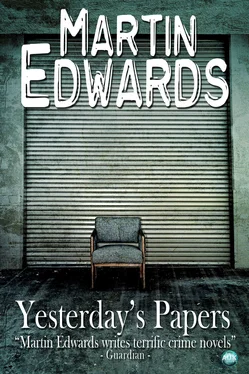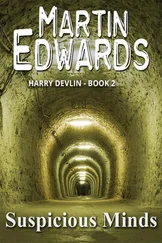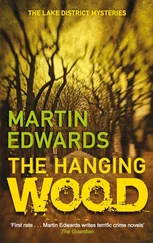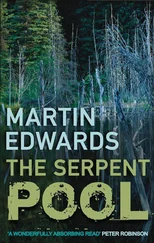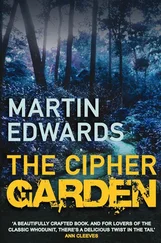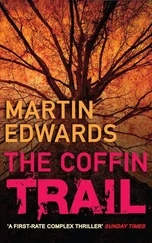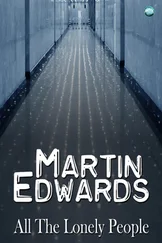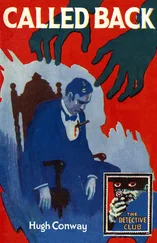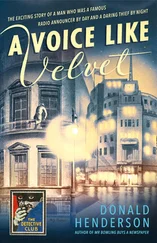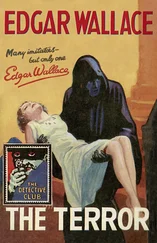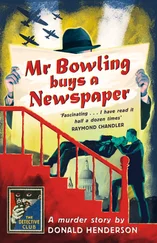Martin Edwards - Yesterday's papers
Здесь есть возможность читать онлайн «Martin Edwards - Yesterday's papers» весь текст электронной книги совершенно бесплатно (целиком полную версию без сокращений). В некоторых случаях можно слушать аудио, скачать через торрент в формате fb2 и присутствует краткое содержание. Жанр: Криминальный детектив, на английском языке. Описание произведения, (предисловие) а так же отзывы посетителей доступны на портале библиотеки ЛибКат.
- Название:Yesterday's papers
- Автор:
- Жанр:
- Год:неизвестен
- ISBN:нет данных
- Рейтинг книги:3 / 5. Голосов: 1
-
Избранное:Добавить в избранное
- Отзывы:
-
Ваша оценка:
- 60
- 1
- 2
- 3
- 4
- 5
Yesterday's papers: краткое содержание, описание и аннотация
Предлагаем к чтению аннотацию, описание, краткое содержание или предисловие (зависит от того, что написал сам автор книги «Yesterday's papers»). Если вы не нашли необходимую информацию о книге — напишите в комментариях, мы постараемся отыскать её.
Yesterday's papers — читать онлайн бесплатно полную книгу (весь текст) целиком
Ниже представлен текст книги, разбитый по страницам. Система сохранения места последней прочитанной страницы, позволяет с удобством читать онлайн бесплатно книгу «Yesterday's papers», без необходимости каждый раз заново искать на чём Вы остановились. Поставьте закладку, и сможете в любой момент перейти на страницу, на которой закончили чтение.
Интервал:
Закладка:
‘His will is straightforward. I can let you have the engrossment before the end of the day if you want.’
‘Thanks. I may want an excuse for another word with Mr Ernest Miller before too long. So if you can prepare it quickly, so much the better.’
‘No problem. Mind you, if we had the latest software, we could turn out any document based on the standard precedents in a matter of minutes at the press of a button. Do you know what we’re missing by not having the latest packages?’
‘No, but from the evangelical light in your eyes, I’m afraid you’re going to tell me.’
His partner sighed. ‘I suppose it’s no use asking if you’d be interested in seeing a rep offering a fifty per cent discount on promotional videos for solicitors’ firms?’
Harry pulled a face. ‘Only if my part will be taken by Richard Gere.’
‘Peter Falk might be better casting.’
‘And I suppose you’d want to be played by a young Sean Connery?’ A thought occurred to him. ‘Wait a minute. Who made this approach to you about the video?’
‘I received a mailshot a couple of days ago. The follow-up phone call came today. The company is Frederick’s, the people who made the management video-tape you vandalised.’
‘I told you, it was the only spare cassette I could find the other night. I wanted to record The Postman Always Rings Twice — the Lana Turner version, that is, from the days when the postman didn’t spend most of his time delivering computer-generated junk mail to impoverished businessmen. But I might just be willing to make amends. Pass me the literature and I’ll give it the once-over.’
Jim’s bushy eyebrows lifted. ‘I don’t believe I’m hearing this. Harry Devlin showing an interest in PR?’
‘I might even be interested in a meeting to see if they could do anything for us. On one condition.’
Jim gave him a suspicious look. ‘Go on.’
‘That we meet the organ grinder, rather than the monkey. I don’t want to waste time with a junior salesman. I’d like a presentation from Benny Frederick himself.’
Benny Frederick was away at a conference in London, the monkey told them, and although he would be willing to see any prospective new customer, he would not be available until after the weekend. Harry had to accept that as good enough, but he could not help chafing with impatience. His conversation with Miller had puzzled him and he could not push the Sefton Park case out of his mind.
He was at a loose end the following day and in the morning he wandered into town, telling himself that he needed to pick up a few odds and ends for the flat as well as food for the week ahead. Yet he did not really fool himself, and before long he found his way to the Bluecoat Gallery, where posters on the railings outside announced an exhibition of Snaps of the Sixties, photographs from the Beatles era taken by Benny Frederick. He paid his money and strolled inside.
A girl at the door handed him a leaflet which told him a little about Benny’s career. He had inherited his father’s studio as a young man in 1961 and had proved to be in the right business in the right place at the right time. His candid camera had caught pop singers, poets and comedians and made him as much of a star as most of them: what Patrick Lichfield was to high society and David Bailey to the world of fashion, Benny Frederick had been to the age of the Mersey Sound. As the city’s golden decade had drawn to a close, he had recognised the need to move with the times and his nose for commerce had prompted him to diversify into video, but it was for his photography that most people knew him best. With justice, Harry thought: despite the self-deprecation of the exhibition’s title, he could see that the photographs were the work of a talented artist. Benny could capture a personality in a single shot, whether it was Ringo Starr cavorting on Blackpool Beach, Ken Dodd clowning at the Empire or Bessie Braddock haranguing a heckler at an election meeting. Brian Epstein was pictured standing offstage at the Cavern, watching with rapt attention as a young John Lennon sang ‘Baby, It’s You’, but Harry was more intrigued by a photograph of a nightclub pianist. His hair was plastered with lotion and his lips curled as if he held his piano in contempt. The caption said simply WARREN HULL AT THE PEPPERMINT LOUNGE — 1961. So this was the Brill Brothers’ guru, yet another man who would later die violently and long before his time. But of Ray and Ian Brill themselves there was no sign.
For a minute or two, Harry flirted aimlessly with the girl on the door, but then her boyfriend arrived and it was time to move on. He had decided to watch the soccer at Anfield in the afternoon, but even after a liquid lunch at the Dock Brief, he still had time to drift into the second-hand bookshop in Williamson Lane. Normally he haunted the fiction room, thumbing through shabby copies of long-forgotten mysteries by the likes of Anthony Berkeley and John Dickson Carr. He relished the sorcery of the old books, with their bodies discovered in rooms that had every door and window locked and barred and their murders in Turkish baths committed by daggers made of ice. The Golden Age of crime fiction seemed to him to be a time of innocence and charm: between the wars, artifice was everything and only authors, not policemen, indulged themselves in creating elaborate fictions.
For once, though, he concentrated on the true crime shelves, keen to see if anyone had ever written up the strangling in Sefton Park. There were endless accounts of the cases of Charles Bravo and Constance Kent, while Florence Maybrick and James Wallace had a whole row to themselves — but he could find nothing on the killing of Carole. Her death had caused a sensation in its day, but it held no interest for the murder buff: there was no suspense in a case that everyone regarded as open and shut.
What if Miller could establish with Renata Grierson’s evidence — whatever it might be — that Carole Jeffries had not died at the hands of Edwin Smith? Would the public interest be stirred and would the men who had known her, the likes not only of Ray Brill, but also Benny Frederick and Clive Doxey, at last come under the microscope? Might long-forgotten motives suddenly emerge?
The thought fascinated him as he made his way upstairs. Perhaps he should do a little background reading. The first floor of the shop was dusty and quiet and he suspected most of the stock stayed on the shelves from one year to the next. Never before had he bothered to search out books about politics or the social sciences — they were subjects he would ordinarily travel a distance to avoid — and it took him a while to find his way around. But in the end he came up with a fat hardback and a dog-eared Penguin that made his visit worthwhile. Our Sterile Society by Guy Jeffries and Radicalism And The Law, a collection of articles by Sir Clive Doxey. A little light reading for after the match.
At home that evening, Harry listened to Dionne Warwick asking the way to San Jose while he studied his purchases. Guy Jeffries’ face appeared on the back of his book’s dustwrapper. He was giving the camera a youthful grin: the photograph must surely have been taken in the early fifties, years before first publication. Harry had little experience of the literary world, but he had noticed before that in real life authors always seemed far older than their publicity pictures made them appear. The biographical notes were more up-to-date, recording the glittering prizes Guy Jeffries had earned so rapidly during his academic career and including an encomium from a future Prime Minister.
There is no more fluent exponent of the integral link between politics and philosophy in Britain today than Guy Jeffries, Harold Wilson had proclaimed, and although it was hardly an epitaph that would have encouraged Harry to glance inside the book in normal circumstances, now he opened it at once.
Читать дальшеИнтервал:
Закладка:
Похожие книги на «Yesterday's papers»
Представляем Вашему вниманию похожие книги на «Yesterday's papers» списком для выбора. Мы отобрали схожую по названию и смыслу литературу в надежде предоставить читателям больше вариантов отыскать новые, интересные, ещё непрочитанные произведения.
Обсуждение, отзывы о книге «Yesterday's papers» и просто собственные мнения читателей. Оставьте ваши комментарии, напишите, что Вы думаете о произведении, его смысле или главных героях. Укажите что конкретно понравилось, а что нет, и почему Вы так считаете.
